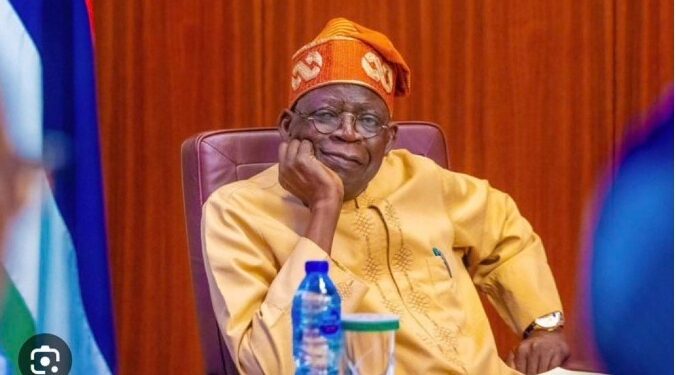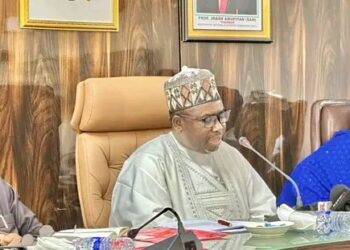By AMINA SAMUEL
KADUNA—President Bola Tinubu says accurate information on the size, characteristics, and distribution of the nation’s population is imperative both for planning and for the effective delivery of public services to Nigerians.
Speaking at the launch of the Digital Civil Registration and Vital Statistics System, and the National Geospatial Data Repository at the State House, on Wednesday, President Tinubu said Nigeria’s population remains the greatest asset the nation wields in the broader mission to become one of the largest economies in the world.
He said the Civil Registration and Vital Statistics (CRVS) system is the basic building block of an identity ecosystem, adding that, “it will help to improve service delivery to all Nigerians and shall ultimately become a vital source of identity data across federal agencies such as NIMC, NIS, Road Safety, INEC, Police, EFCC and other security outfits.
“The system will also improve the ability of our federal agencies to generate vital statistics on important population events and migration, further enabling the government to design well-tailored, effective and efficient policies that are capable of meeting the specific needs of the Nigerian people.
“It is my hope that the current drive to re-position this vital registration system will provide the basis for the 100% attainment of our Year 2030 SDG targets in respect of real-time identity management and population data.
“Our population remains the greatest asset of the nation in the development process. Collecting accurate and reliable information on the size, distribution, composition, and characteristics of the population is an essential governance activity that is also consistent with the Renewed Hope Agenda of the present administration. The Commission will therefore be supported in the conduct of the next census,” the President affirmed.
Commending the National Population Commission (NPC) for the initiative, President Tinubu asked the commission to deploy its cutting edge technology, especially the geo-spatial data that has been collected through the Enumeration Area Demarcation in implementing the eCRVS.
“Coming at a time when the Commission has made substantial progress in its quest to deliver the first digital population and housing census, it is my hope that the result of the census will provide the nation with much-needed data for development planning and the enthronement of good governance.
“It is, therefore, my great pleasure to launch the VITAL REG system and the National Geo-Spatial Data Repository to the greater glory of God, our unity, and the collective prosperity of our great country.
“I am also pleased to inaugurate the National Coordination Committee of CRVS under the Chairmanship of the National Population Commission, which is composed of stakeholders across relevant federal ministries and agencies,” the President said.
President Tinubu further implored members of the Committee to demonstrate maximum commitment and hard work in ensuring a huge success of the new electronic Civil Registration and Vital Statistics (eCRVS) system for the progress, peace and development of the country.











